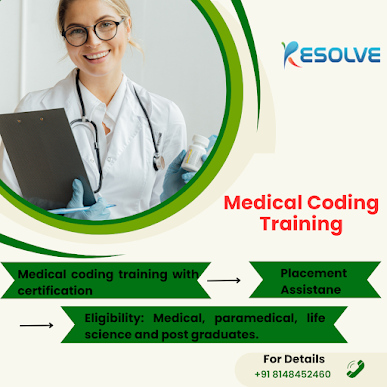Medical Coding, Clinical Research, CPC, Regulatory Affairs and Pharmacovigilance Trainings
In the vast landscape of the healthcare industry, specialized training plays a pivotal role in shaping competent professionals who are equipped to navigate the complexities of their respective fields. From medical coding to pharmacovigilance, the demand for skilled individuals continues to rise, underscoring the importance of comprehensive training programs.
Medical Coding Training
Medical coding serves as the backbone of healthcare reimbursement and data analysis. Essentially, it involves translating medical diagnoses, procedures, and services into universal alphanumeric codes. Accuracy in medical coding is paramount as it ensures proper billing, facilitates data management, and supports medical research efforts. Aspiring medical coders can pursue various certifications such as Certified Professional Coder (CPC), Certified Coding Specialist (CCS), or Certified Coding Associate (CCA) to validate their proficiency in this field.
Clinical Research Training
Clinical research is the cornerstone of evidence-based medicine, driving innovation and advancements in healthcare. It encompasses a diverse range of studies designed to evaluate the safety and efficacy of medical treatments, devices, and interventions. Clinical research professionals play a crucial role in every stage of the research process, from protocol development to data analysis. Training in clinical research equips individuals with the knowledge and skills necessary to conduct rigorous studies while adhering to ethical and regulatory standards.
Certified Professional Coder (CPC) Training
Certified Professional Coder (CPC) certification is highly regarded in the healthcare industry, particularly in the realm of medical coding and billing. CPCs are proficient in assigning accurate codes for diagnoses, procedures, and services provided by healthcare providers. Achieving CPC certification demonstrates mastery of coding guidelines, regulations, and healthcare terminology. Aspiring CPCs undergo rigorous training and preparation to pass the certification exam, which covers various coding disciplines such as evaluation and management (E/M), surgery, and anesthesia.
Regulatory Affairs Training
Regulatory affairs professionals play a vital role in ensuring compliance with laws, regulations, and guidelines governing the development, manufacture, and distribution of pharmaceuticals and medical devices. Training in regulatory affairs provides individuals with an in-depth understanding of regulatory requirements, submission processes, and quality assurance practices. By staying abreast of evolving regulatory landscapes, regulatory affairs professionals help companies navigate complex regulatory pathways and bring safe and effective products to market.
Pharmacovigilance Training
Pharmacovigilance is a critical component of drug safety surveillance, aimed at identifying, assessing, and preventing adverse effects associated with pharmaceutical products. Pharmacovigilance professionals monitor and analyze data from healthcare providers, patients, and regulatory agencies to detect potential safety signals and mitigate risks. Training in pharmacovigilance covers topics such as adverse event reporting, risk management, and pharmacovigilance regulations. By investing in pharmacovigilance training, professionals contribute to public health by ensuring the safe use of medications.
In conclusion, specialized training programs in medical coding, clinical research, CPC, regulatory affairs, and pharmacovigilance are essential for preparing individuals for diverse roles within the healthcare industry. By acquiring specialized knowledge and skills, professionals can make meaningful contributions to patient care, regulatory compliance, and public health initiatives.









Comments
Post a Comment